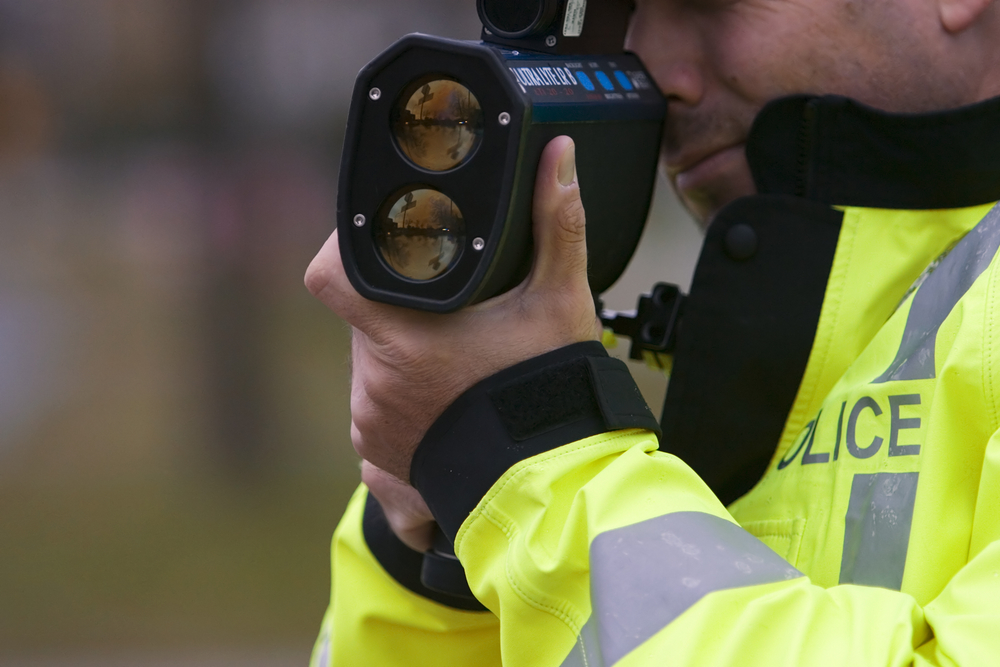

More and more islanders are calling the police to report drunk drivers and those who don't drive responsibly and helping to make the roads safer.
The number of speeders stopped on the roads has been reducing over the past five years and the force says it is due to a combined approach, which also includes the help of the public.
A recent Express FOI request revealed speeding was the most common offence and represented 20% of all offences committed in the past five years. Furthermore, traffic offences, including driving a defective vehicle, with a phone without insurance or due care and attention make up, 73.5% of offences. Although a bit worrying, the figures also show the number of speeding offences have been reduced by more than a half since 2012, going from 1347 to 597 in 2016.
According to acting inspector Paul Smith, the decline has been gradual but does not mean that there are less policing areas. He told Express: "It certainly shows that we are heading in the right direction. We try to maximise our resources to minimise the numbers. We have a policy plan that identifies the areas where we are going to be using our set of resources and we focus on specific areas. We look to the UK to see what they are doing as well and try and mirror their actions. Speeding was only one of the aspects we focused on along with drink driving and texting while driving. Those are anti-social offences because drivers that are guilty of them put others in dangers, which is ludicrous."
The force targets specific areas to hold speed checks by "drilling down where road accidents happen." However, Acting inspector Smith says speed is sometimes only part of the picture as collisions can be due to a combination of poor driving skills, road conditions, weather and distraction. Indeed, while Victoria Avenue and the Five Mile Road are speeding hot spots, the road with the highest level of RTCs is Beaumont Hill, which Acting Inspector Smith attributes to the fact that is a busy arterial and winding road that tends to be washed over when it rains.

Pictured: Speed checks are "not always about catching but more about being seen," says Acting Inspector Paul Smith.
The fight against speeding, and other driving offences, is one that requires a combination of education and enforcement which is why the police hold speed campaigns as well as Traffic Focus Days. They also work with partner agencies, including the DfI, which is responsible for the maintenance of the roads. Acting Inspector Smith explains: "We have a combined approach between the States Police and the Honorary Police to bring down the level of offences on our roads. Officers on the roads are always looking at offences, but it is not always about catching but more about being seen. The level of prosecution is sometimes very low compared to the number of drivers stopped but it is about spreading the word that we are out there and that there is a realistic chance you can get caught and prosecuted."
As a testimony to their focus on educating drivers, officers do not systemically fine those that are over the speed limit. When they are very slightly over and there are no aggravating factors, if for example they were not driving near schools or with members of the public nearby or the road conditions were good, drivers are only given words of advice. 648 drivers were spoken to by officers in 2016. Acting Inspector Paul Smith explained: "I never want an officer's discretion taken away. They are the ones that will judge whether a fine needs to be imposed or if a word of advice is enough. But it is not a "Get out of jail free" card, when a driver is spoken to, it is attached to their police record and they wouldn't be given a second chance."
One other important aspect of the fight against dangerous drivers is the cooperation of the public. More and more islanders are rushing to their phone to report drivers when they see them driving dangerously or under the influence. This is especially true over the Christmas period: over half of the 1,000 drivers that were stopped last year had been reported by members of the public.
Acting Inspector Smith says: "This is a fantastic success for us. It means that people feel they can trust us to do something when they share information with us. We value information from the public because we can't have an officer on each and every road. The day we stop getting calls, we will be really concerned because it will mean they think we do not care. We receive regular calls about what we call "manners of driving" and we assess all of them."
Comments
Comments on this story express the views of the commentator only, not Bailiwick Publishing. We are unable to guarantee the accuracy of any of those comments.